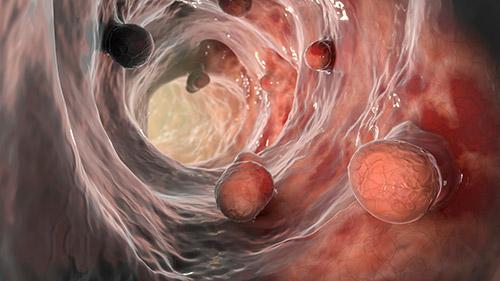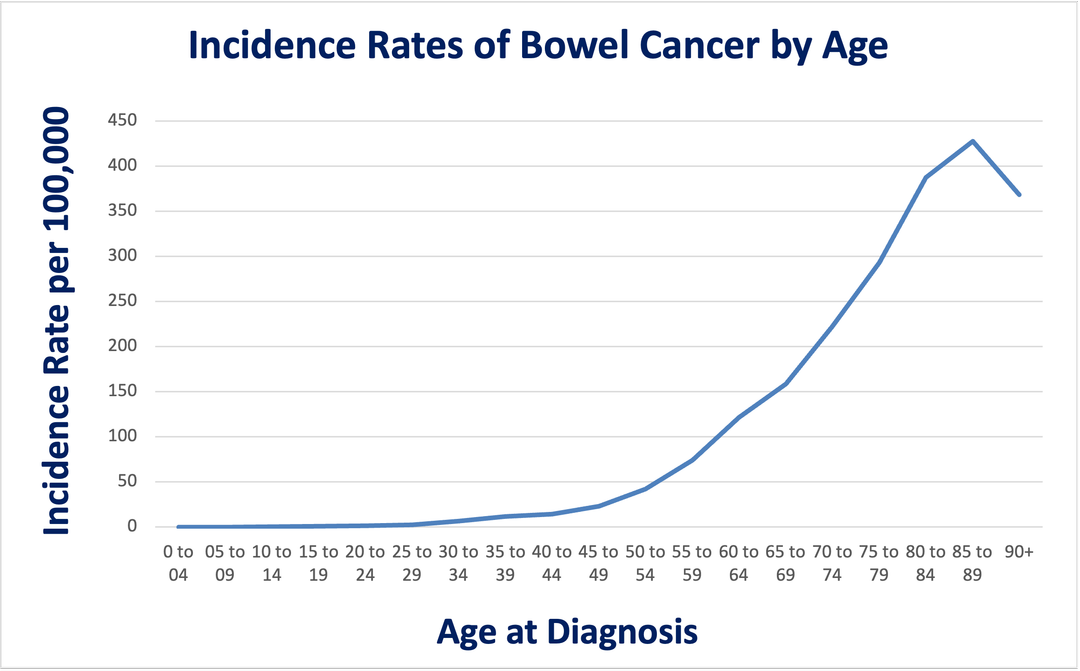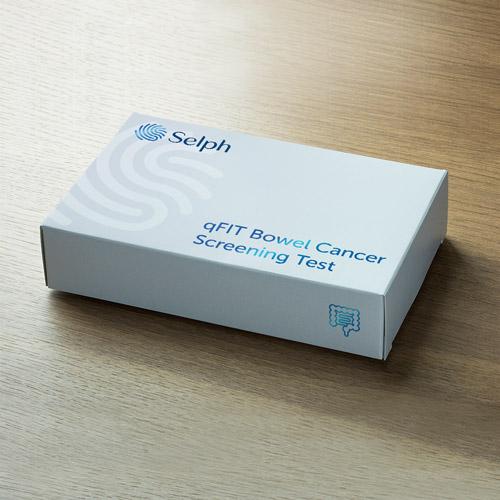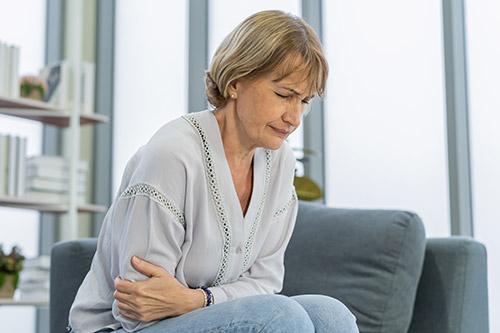What you need to know about bowel cancer
Published
Key Article Takeaways
- Bowel cancer (colon cancer) is the commonest cause of cancer death amongst non-smokers.
- It's important to start screening for bowel cancer in your 40s because, by the time you get symptoms, the cancer is often quite advanced and harder to treat.
- Symptoms to watch out for include a change in bowel habit, blood in the stool, stomach pain and weight loss.
- Risk factors for colon cancer include older age, family history, smoking, obesity and poor diet.
- You can quickly and easily test for bowel cancer with a qFIT test.
Bowel cancer, also known as colon cancer or colorectal cancer, is one of the commonest cancers, affecting about 1-in-15 of us during our lifetime. In fact, it's the commonest cause of cancer death in non-smokers1. Given that bowel cancer is so common, it pays to know a little about it including, what colon cancer is, the common signs and symptoms of bowel cancer, what causes it and how to diagnose bowel cancer.
What is bowel cancer?
Bowel cancer is an abnormal growth in the colon or rectum (your large bowel). The growth begins a small lump in the lining of the gut called an adenoma or polyp. This lump grows slowly over years (up to 10 years!) to become a cancer.
It can grow through the bowel wall and also spread to other parts of the body such as the liver or lungs. When bowel cancer has spread to distant parts of the body it is often very difficult to cure.
Don’t wait until you get symptoms to get checked for bowel cancer
One of the most important things to understand about bowel caner is that by the time it's causing symptoms that you would notice, the cancer is often quite large and is at a more advanced stage where it's hard to treat.
By the time bowel cancer is picked up in most people, they're already at a late stage where the bowel cancer has spread into other organs2.
This means that we need to pick up bowel cancer before it's causing symptoms - this is called bowel cancer screening. When we pick up bowel cancer by screening, it's usually at an earlier stage where it's easier to cure. In fact, you're 3 times more likely to survive bowel cancer if you’re diagnosed through screening compared to being diagnosed because you’ve got bowel cancer symptoms3
What should you keep an eye out for?
Although it's best to pick up bowel cancer early, by screening, it's also important to know what bowel cancer symptoms and signs to keep an eye out for so you can see a doctor as quickly as possible if they do happen.
What to watch out for with bowel cancer
- A change in bowel habit: for example, opening your bowels more often or having a change in your stool consistency
- Blood in your stool
- Stomach pain
- Losing weight without meaning to
- Feeling like you need to open your bowels again even though you've only just been
What causes bowel cancer?
Bowel cancer comes from an abnormal growth of tissue in the bowel lining called a polyp or adenoma. But only about 1-in-10 polyps turn into bowel cancer. We can see and remove polyps during a colonoscopy (camera test in the bowel) and this can actually prevent bowel cancer occurring.

We believe that something causes damage to DNA in one or more of the cells in the gut lining. Damaged or "mutated" DNA can affect how the cells grow, leading to the overgrowth called a polyp. Over time, further DNA damage can occur and the cells in the polyp can turn cancerous, meaning that they can grow uncontrollably and invade other tissues.
There are several "risk factors" that increase the risk of DNA damage in the bowel and increase your risk of developing bowel cancer.
What are the risk factors for bowel cancer?
A "risk factor" is something that increases the risk of developing a disease. The main risk factors for developing bowel cancer are:
Age
DNA damage build up with age and the older you are, the higher your risk of bowel cancer. Age is actually the strongest risk factor for getting bowel cancer.
Some 90% of bowel cancers are diagnosed in people over 50. Of the people getting bowel cancer before the age of 50, the vast majority are in their 40s. Whilst you can get bowel cancer in your 20s and 30s, it’s very rare and you’ll often have a strong family history of bowel cancer. In fact, the chance of being diagnosed with bowel cancer under 40 is about 1 in 5,000 (23 cases per 100,000 of the population)4. You can see how the risk of being diagnosed with bowel cancer increases as you get older in figure 1 below:

However, the risk of getting bowel cancer under the age of 50 has been increasing since the 1990s. People born around the 1990s have twice the risk of colon cancer and four times the risk of rectal cancer than those born around the 1950s5, 6. This is why it's so important to start screening for bowel cancer in your 40s.
Family history
If someone else in your family has had bowel cancer, particularly if they're a first-degree relative (i.e. parent, sibling or child), then your risk of developing bowel cancer is likely to be higher than average.
The age at which your relative was diagnosed with bowel cancer is also important. The younger they were, the more likely that their bowel caner was linked to their genes rather being caused by ageing. Having a relative diagnosed with bowel cancer under 50 indicates a high risk.
Smoking
In case you need another reason to stop smoking: smoking is the commonest preventable cause of bowel cancer7.
Obesity
Being obese is not far behind smoking in terms of the big risk factors for developing bowel cancer8. It's likely that this is because excess fat causes inflammation and insulin resistance which in turn promote the development and growth of bowel cancer.
Diet
The role of diet in the development of bowel cancer is controversial because dietary studies are subject to many biases. However, it seems likely that alcohol, sugar-sweetened beverages and processed meat may increase the risk of bowel cancer whereas whole grains, fibre and dairy consumption probably reduce the risk of bowel cancer9.
How is bowel cancer diagnosed?
The only way to diagnose bowel cancer is by having a camera test and taking a very small piece of the tumour (called a biopsy) to look at under a microscope. But how do we know who should have camera test?
Most people are diagnosed with bowel cancer because they go to their GP with gut symptoms. In these cases, guidelines from the National Institute of Clinical Excellence (NICE) recommend that people have qFIT test to look for blood in the stool10. If the qFIT test result is positive (≥10µg/g), then their GP refers them to a specialist to do a colonoscopy.
About 10% of people are diagnosed with bowel cancer through the Bowel Cancer Screening Programme11. In England, people over 54 are sent a qFIT test in the post and, if the test is positive (≥120µg/g), they go on to have a colonoscopy.
Take our qFIT test to check for bowel cancer
As you can see, regardless of whether you're screening or have gut symptoms, the qFIT test is the crucial first step in diagnosing bowel cancer. If there's blood in your stool, you'd then go on to have a colonoscopy to see if bowel cancer is causing the bleeding.
You can quickly and easily get a qFIT test from us. It's the same test used in the Bowel Cancer Screening programme and is analysed by an NHS-testing lab. You'll get your result and doctor's report the same-day the lab receive the sample. What's more, we donate to St Mark's Hospital Foundation with every test.
Get tips on better health
Sign up to our emails on the better way to better health.
We'll keep you up-to-date with the latest research, expert articles and new ways to get more years of better health.






